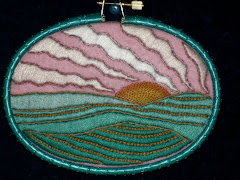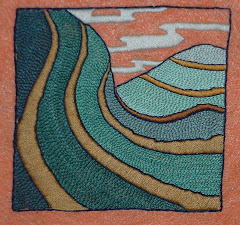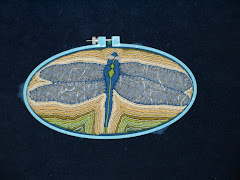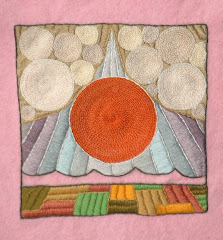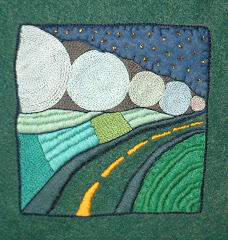I was pleased to see President Obama made a decision with regard to the Keystone Pipeline last week. However, he left the door open to continue the project, so I’m not ready to celebrate.
I developed an interest in water supplies after teaching a Bible study on globalization a couple of years ago. From municipalities selling water rights to bottling companies to water supplies poisoned by fracking (the source of Keystone’s oil) and other industrial processes, I learned water is becoming an embattled resource due to growing scarcity.
So the idea of running an oil pipeline across one of the largest water sources in our country, the Ogallala Aquifer, concerns me. And after the Fukishima reactor disaster last year, I am skeptical when ads (paid for by an energy consortium) quote a single geology professor saying, “I guarantee” Keystone’s tar sands oil will NOT contaminate our water supply. I believe the energy company building the Fukishima plant gave Japanese residents similar guarantees. Yet how many times have we seen Mother Nature deliver unanticipated destruction?
I understand the hope that the pipeline will supply jobs, but the few studies conducted show the industry’s estimates are high.
A recent study by Cornell University disputes the industry’s 140,000 jobs (direct and indirect) estimate, noting a number of negative factors including: the temporary nature of the jobs, many of which will be filled by non-local workers, and the possibility of related job losses due to higher Midwestern fuel prices, spills, pollution and costs from climate change. To quantify it further, some estimates ballpark the real job numbers at 2,500 to 4,650 (temporary) jobs.
And did you catch the reference to higher Midwestern fuel prices? Contrary to the pro-pipeline ads, the Cornell report states: “KXL will divert Tar Sands oil now supplying Midwest refineries, so it can be sold at higher prices to the Gulf Coast and export markets. As a result, consumers in the Midwest could be paying 10 to 20 cents more per gallon for gasoline and diesel fuel.” Of course, China is one of the major markets for this oil.
As I watch the rise of wind turbines on our horizons, I wonder which project is creating safer long term energy solutions. And I have to ask again, do the benefits of the Keystone Pipeline outweigh the risks to our water supply and quality of life? Does the potential for 5,000 temporary jobs outweigh the cost of higher fuel prices?
The government’s environmental impact study includes information about leaks in existing pipelines included in the project, specifically Ludden, N.D., so it’s a given leaks will occur. To quote this study: “The Northern High Plains Aquifer system supplies 78 percent of the public water supply and 83 percent of irrigation water in Nebraska and approximately 30 percent of water used in the U.S. for irrigation and agriculture.”
Before we get an answer the hard way, I think we should look for renewable energy sources to replace the oil and study the project further. And perhaps Keystone’s resources would be better spent to research alternative energy sources as well.
In the meantime, read and study for yourself.
Executive Summary: Final Environmental Impact Statement for the Proposed Keystone XL Project http://www.keystonepipeline-xl.state.gov/clientsite/keystonexl.nsf/03_KX...
Cornell GLI Study Finds Keystone XL Pipeline Will Create Few Jobs http://www.ilr.cornell.edu/globallaborinstitute/research/Keystonexl.html
Cornell’s full report: http://www.ilr.cornell.edu/globallaborinstitute/research/upload/GLI_Keys...
Tuesday, January 31, 2012
Thursday, January 19, 2012
Caucuses and Primaries: Do you know the difference between the two?
Hallelujah, the caucuses are over! My phone no longer rings off the hook, we get through meals uninterrupted, and local TV news reporters are back to covering accidents, crimes and sporting events.
But after surviving the latest round of political reporting, I have to wonder how many people really understand our political system? Let me give you a couple of examples.
On the morning of the caucuses, I was watching the early news on one of the three Omaha network affiliates. The reporter interviewing a metro-area Republican Party official asked about the anticipated number of voters attending. However, the caucuses aren’t open to every voter; they are for the political parties’ members.
Those participating must choose which party caucus to attend and must be willing to register as a party member, even if it’s only temporarily.
Generally only a fraction of each party’s registered voters, usually those most active, participate in the caucuses.
Another point to remember is each party’s rules are different.
While the Republican Party uses a secret ballot voting system for caucus goers to choose their candidate, Democrats use a system of conversation, wrangling and consensus to distribute elected delegates to chosen candidates.
Iowa is one of few states still using the caucus system; most have primaries. But even the primaries, in which votes are cast, are a function of the parties.
And rules vary from state to state. Some states only allow party members to vote; others require open primaries that allow voters of any party to participate in the primary of their choice.
I bring it up because the same reporter used the terms “primary” and “caucus” as though they are interchangeable.
But not only do local reporters get things wrong. I was disappointed to hear Rachel Maddow of MSNBC, a political reporter who usually does better research than most, complaining the Iowa caucuses aren’t democratic. Hello? Party function, Rachel.
Which leads me to ask if American citizens know enough about our system and candidates to make informed decisions? It’s a question with which the founding fathers wrestled. It’s why our system elects presidents via both the popular vote and the Electoral College.
For those who don’t know, the Electoral College began as part of the original design of the U.S. Constitution and was established as a compromise between election of the president by Congress and by the popular vote. Citizens vote for the electors who then vote for the President.
However I find low citizen participation the most disappointing part of our system. For a country known for promoting its democracy, too many citizens choose NOT to exercise their rights. I am speaking from experience.
Although I have always voted in state and national elections and advocated on individual issues, I was a registered independent for 30 years.
But having lived most of my life in states with closed primaries and caucuses, I finally got tired of letting others choose my candidates for the general election.
So instead of complaining about my choices in 2008, I decided to participate in the process. I recommend others do the same.
You learn a lot by doing.
But after surviving the latest round of political reporting, I have to wonder how many people really understand our political system? Let me give you a couple of examples.
On the morning of the caucuses, I was watching the early news on one of the three Omaha network affiliates. The reporter interviewing a metro-area Republican Party official asked about the anticipated number of voters attending. However, the caucuses aren’t open to every voter; they are for the political parties’ members.
Those participating must choose which party caucus to attend and must be willing to register as a party member, even if it’s only temporarily.
Generally only a fraction of each party’s registered voters, usually those most active, participate in the caucuses.
Another point to remember is each party’s rules are different.
While the Republican Party uses a secret ballot voting system for caucus goers to choose their candidate, Democrats use a system of conversation, wrangling and consensus to distribute elected delegates to chosen candidates.
Iowa is one of few states still using the caucus system; most have primaries. But even the primaries, in which votes are cast, are a function of the parties.
And rules vary from state to state. Some states only allow party members to vote; others require open primaries that allow voters of any party to participate in the primary of their choice.
I bring it up because the same reporter used the terms “primary” and “caucus” as though they are interchangeable.
But not only do local reporters get things wrong. I was disappointed to hear Rachel Maddow of MSNBC, a political reporter who usually does better research than most, complaining the Iowa caucuses aren’t democratic. Hello? Party function, Rachel.
Which leads me to ask if American citizens know enough about our system and candidates to make informed decisions? It’s a question with which the founding fathers wrestled. It’s why our system elects presidents via both the popular vote and the Electoral College.
For those who don’t know, the Electoral College began as part of the original design of the U.S. Constitution and was established as a compromise between election of the president by Congress and by the popular vote. Citizens vote for the electors who then vote for the President.
However I find low citizen participation the most disappointing part of our system. For a country known for promoting its democracy, too many citizens choose NOT to exercise their rights. I am speaking from experience.
Although I have always voted in state and national elections and advocated on individual issues, I was a registered independent for 30 years.
But having lived most of my life in states with closed primaries and caucuses, I finally got tired of letting others choose my candidates for the general election.
So instead of complaining about my choices in 2008, I decided to participate in the process. I recommend others do the same.
You learn a lot by doing.
Wednesday, January 4, 2012
Whatever happened to statesmanship?
“I got a lot of problems with you people!” yells George Costanza’s father on Seinfeld during the Festivus Airing of the Grievances.
And that’s how I felt watching our Congressional Republicans during the fight to extend the payroll tax cut and unemployment benefits.
At a time when millions of Americans cannot find work and many families open empty cupboards the latter half of every month, House Republicans were willing to raise taxes on working people and leave the unemployed empty handed.
For what? To protect wealthy Americans and corporate special interests, in this case, a Canadian energy company lobbying to build the Keystone pipeline – an enterprise with no proven long-term benefits and major environmental risks.
It’s like watching a parent with a tantrum-throwing toddler -- on one side is a reasonable willingness to work together while on the other is a determination to obstruct everything that might give the other party and, in most cases 99 percent of voters, help.
That’s about the level of conversation we’ve seen from Congress the last three years, especially since electing a group of Tea Party Republicans in 2010. And it becomes more infuriating the longer this recession lasts.
But most importantly to these Republican representatives, such obstruction prevents a Democratic president from “scoring” what they see as only a political win. I’ve heard some of these public officials say, “It’s a matter of principle.”
I have to question the principles of anyone willing to let the entire country slide off a cliff by shutting down our government and cutting off paychecks – employment, unemployment, Social Security – to the people most in need. Is it principled to deliberately destroy the nation’s financial standing because you disagree with the political philosophy of the democratically elected president and the opposition party?
And is it principled to ignore the voters who elected you to score political victories when these same voters desperately need policies to provide aid and encourage hiring? Is it principled to argue for policies proven, disastrously I might add based on the last 10 years, NOT to work, such as income tax cuts for wealthy Americans and corporations?
At a time when many Americans would take any work they could get, is it principled to sit on your hands instead of doing the work voters elected you to do?
Perhaps these Tea Party Republicans don’t understand they have been elected as statesmen.
Statesmanship requires conversing with the opposition to find common ground. It also requires a willingness to move, explore options and compromise to pass legislation that benefits as many citizens as possible. (And corporations are not citizens!)
It’s a balancing act because a statesman understands his or her constituents include a variety of interests. But instead, our current Congressional Republicans have decided obstructing everything proposed by the opposition is their job.
That’s the level of “public service” voters get when we elect representatives based solely on political advertisements, campaign speeches and party affiliation.
And let’s be honest, isn’t that what a lot of us do?
Until Americans demand information on policy, track legislation and voting records, and do their homework on candidates for office, it’s all we’re going to get.
Because it’s not the party that matters, it’s the person. And everybody has a history.
So make sure you do your homework before you cast your vote. The information is out there if you choose to access it.
And that’s how I felt watching our Congressional Republicans during the fight to extend the payroll tax cut and unemployment benefits.
At a time when millions of Americans cannot find work and many families open empty cupboards the latter half of every month, House Republicans were willing to raise taxes on working people and leave the unemployed empty handed.
For what? To protect wealthy Americans and corporate special interests, in this case, a Canadian energy company lobbying to build the Keystone pipeline – an enterprise with no proven long-term benefits and major environmental risks.
It’s like watching a parent with a tantrum-throwing toddler -- on one side is a reasonable willingness to work together while on the other is a determination to obstruct everything that might give the other party and, in most cases 99 percent of voters, help.
That’s about the level of conversation we’ve seen from Congress the last three years, especially since electing a group of Tea Party Republicans in 2010. And it becomes more infuriating the longer this recession lasts.
But most importantly to these Republican representatives, such obstruction prevents a Democratic president from “scoring” what they see as only a political win. I’ve heard some of these public officials say, “It’s a matter of principle.”
I have to question the principles of anyone willing to let the entire country slide off a cliff by shutting down our government and cutting off paychecks – employment, unemployment, Social Security – to the people most in need. Is it principled to deliberately destroy the nation’s financial standing because you disagree with the political philosophy of the democratically elected president and the opposition party?
And is it principled to ignore the voters who elected you to score political victories when these same voters desperately need policies to provide aid and encourage hiring? Is it principled to argue for policies proven, disastrously I might add based on the last 10 years, NOT to work, such as income tax cuts for wealthy Americans and corporations?
At a time when many Americans would take any work they could get, is it principled to sit on your hands instead of doing the work voters elected you to do?
Perhaps these Tea Party Republicans don’t understand they have been elected as statesmen.
Statesmanship requires conversing with the opposition to find common ground. It also requires a willingness to move, explore options and compromise to pass legislation that benefits as many citizens as possible. (And corporations are not citizens!)
It’s a balancing act because a statesman understands his or her constituents include a variety of interests. But instead, our current Congressional Republicans have decided obstructing everything proposed by the opposition is their job.
That’s the level of “public service” voters get when we elect representatives based solely on political advertisements, campaign speeches and party affiliation.
And let’s be honest, isn’t that what a lot of us do?
Until Americans demand information on policy, track legislation and voting records, and do their homework on candidates for office, it’s all we’re going to get.
Because it’s not the party that matters, it’s the person. And everybody has a history.
So make sure you do your homework before you cast your vote. The information is out there if you choose to access it.
Subscribe to:
Posts (Atom)
